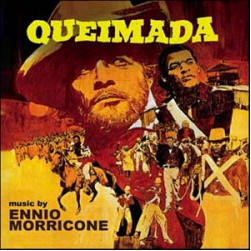主页--->m-comment-000--->mb-comment-008-80
|
电脑版 |
|||||||||||||||||||||||||||||||||||||||||||||||||||||||||||||||||||||||||||||||||||||||||||||||||||||||||
布罗克斯顿评说莫里康内 MB-008-80 |
||||||||||||||||||||||||||||||||||||||||||||||||||||||||||||||||||||||||||||||||||||||||||||||||||||||||||
FA6911 Queimada
/ Burn! / 烽火怪客
/ 凯马达政变 |
||||||||||||||||||||||||||||||||||||||||||||||||||||||||||||||||||||||||||||||||||||||||||||||||||||||||||
作者 乔纳森·布罗克斯顿 (Jonathan Broxton) |
||||||||||||||||||||||||||||||||||||||||||||||||||||||||||||||||||||||||||||||||||||||||||||||||||||||||||
ENNIO MORRICONE 评论,第8部分 008-80 |
||||||||||||||||||||||||||||||||||||||||||||||||||||||||||||||||||||||||||||||||||||||||||||||||||||||||||
ENNIO MORRICONE REVIEWS, Part VIII |
||||||||||||||||||||||||||||||||||||||||||||||||||||||||||||||||||||||||||||||||||||||||||||||||||||||||||
October 17, 2020 |
||||||||||||||||||||||||||||||||||||||||||||||||||||||||||||||||||||||||||||||||||||||||||||||||||||||||||
在我关于标志性作曲家早期职业生涯的系列文章的第八期中,我们来看看传奇人物埃尼奥·莫里康内在1969年以及整个20世纪60年代创作的最后八首乐谱。这组评论是一个典型的混合包,探索了一系列浪漫戏剧的流行迷幻音乐和爵士乐配乐,莫里康内演唱会的最爱,一部代表性不足但出色的意大利面条西部片,以及一部包含英国职业飞镖迷非常熟悉的音乐的性爱剧! |
||||||||||||||||||||||||||||||||||||||||||||||||||||||||||||||||||||||||||||||||||||||||||||||||||||||||||
In this eighth installment of my series looking at the early careers of iconic composers, we take a look at the final eight scores written by the legendary Ennio Morricone in 1969, and in the entire 1960s decade. This group of reviews is a typical mixed bag, exploring several pop-psychedelia and jazz scores for a series of romantic dramas, an all-time Morricone concert favorite, an under-represented but excellent spaghetti western, and a sex drama that contains a piece of music that will be VERY familiar to British professional darts fans!
|
||||||||||||||||||||||||||||||||||||||||||||||||||||||||||||||||||||||||||||||||||||||||||||||||||||||||||
 |
||||||||||||||||||||||||||||||||||||||||||||||||||||||||||||||||||||||||||||||||||||||||||||||||||||||||||
奎马达 (1969) 《Queimada》是一部由传奇人物马龙·白兰度主演的意大利战争剧。他扮演一位名叫威廉·沃克爵士的英国秘密政府特工,他前往虚构的加勒比海岛屿奎马达,并操纵岛上的当地奴隶反抗葡萄牙殖民政权——所有这些都是为了让英国人可以进来接管岛上利润丰厚的甘蔗产业。然而,事实证明,英国人的冷酷无情程度不亚于葡萄牙人,因此当地人——由热情、理想主义的何塞·多洛雷斯(埃瓦里斯托·马尔克斯饰)领导——组织了另一场叛乱;只不过,这一次,沃克站在了另一边。这部电影由吉洛·庞泰科尔沃执导,他的上一部电影是《阿尔及尔之战》,是对殖民主义、马基雅维利政治和背叛的严厉控诉,并在评论家中取得了成功。 当然,莫里康内配乐的基石是令人惊讶的开场提示“Abolição”,这是一个葡萄牙语单词,意思是“废除”或“压制”。这首曲子的力量相当惊人——它以教堂管风琴演奏简单重复的旋律开始,但在五分钟的时间里,它逐渐拾起一个混合声音合唱团一遍又一遍地吟唱这个词、部落打击乐、电吉他即兴演奏,甚至还有独奏小号的繁荣。在乐曲的最后,乐团几乎陷入了狂热,呼吁自由和从压迫中解脱出来,这真是令人惊讶。莫里康内经常在音乐会上演奏这首曲子作为加演节目,它总是让房子倒塌——怎么可能不呢? 乐谱的其余部分由十几个反复出现的主题组成,其中许多主题随着乐谱的进行而变化和概括。Queimada 主题本身实际上本身就是一首非常可爱的作品,它采用了“Abolição”的配器和吟诵词,但使其几乎是悠闲的、热带的和诱人的,尤其是在开场的“Prima”中,以及后来的“Pezzo Classico”中。许多其他具有相同风格元素的线索都非常克制,有时甚至紧张,将险恶的弦乐与部落打击乐和人声相结合,以说明该国的刀锋政治气候;“Anche i Portoghesi Muoiono”、“Libertà”、“La Civiltà dei Bianchi”、生动的“Seconda”和“William e José”就是很好的例子。 “Verso Il Futuro”主题采用了“Abolição”为电吉他编曲的次要旋律,并将其与听起来有些凄凉的合唱哀歌相结合,尽管“#4”和“#7”中的合唱和声很可爱。“何塞·多洛雷斯”的主题是一首简单、质朴的吉他、打击乐和哈蒙德管风琴 ( Hammond organ) 作品,但随着主题的发展,可爱的弦乐和声真的非常美丽,并讲述了他善良的心和带领他的人民走向自由的愿望。后来,“大元帅”将何塞·多洛雷斯的主题与主要的 Abolição 合唱元素相结合,效果极佳。最后一首杰出的作品是“Osanna”,这是对宗教合唱威严的丰富探索,穿插着平静的部落鼓点和并列的“Abolição”主题的陈述——再次是当地人、葡萄牙人和英国人之间的冲突。这真是太棒了。 鉴于其受欢迎程度,Queimada 多年来已多次以 CD 形式发行,包括 1996 年由 Vivi Musica 发行的广受欢迎的多乐谱版本,该专辑将九个亮点线索与 The Good the Bad and the Ugly、Il Mercenario 和 La Resa dei Conti 等的音乐相结合。这里回顾的版本是GDM/Legend在500年发行的2012份限量版独立乐谱,它将运行时间延长到一个多小时。这是莫里康内的重要版本,如果没有其他原因,那就是“Abolição”是有史以来最伟大的 曲目列表: 1. Abolição (5:06), 2.奎马达·普里马 (1:28), 3.Anche i Portoghesi Muoiono (1:19), 4.Pezzo Classico #1 (0:44), 5.自由 (1:42), 6.Verso Il Futuro (4:36), 7.何塞·多洛雷斯 (1:27), 8.La Civiltà dei Bianchi (2:22), 9.何塞·多洛雷斯 #2 (0:43), 10.Una Nuove Nazione (0:41), 11.Verso Il Futuro #2 (0:58), 12.Queimada Seconda (4:03), 13.Preparazione (1:45), 14.大元帅(1:27),15。帕图利亚 (2:31), 16.奥萨纳(4:18),第17页。Verso Il Futuro #3 (1:14), 18.Canna da Zucchero (1:11), 19.Verso Il Futuro #4 (1:59), 20.威廉·何塞 (1:45), 21.何塞·多洛雷斯 #3 (1:27), 22.Verso Il Futuro #5 (1:58), 23.Pezzo Classico #2 (0:48), 24.Tudi per un finale (3:26), 25.Preparazione #2 (3:15), 26.玛西娅(1:11),27。Verso Il Futuro #6 (1:56), 28.Queimada Seconda #2 (0:42), 29.威廉·何塞 #2 (1:13), 30.Verso Il Futuro #7 (4:53), 31.Studi per un finale #2 (1:55).GDM/Legend 4219,64 分 03 秒。 |
||||||||||||||||||||||||||||||||||||||||||||||||||||||||||||||||||||||||||||||||||||||||||||||||||||||||||
2020.10.17 |
||||||||||||||||||||||||||||||||||||||||||||||||||||||||||||||||||||||||||||||||||||||||||||||||||||||||||
|
| ||||||||||||||||||||||||||||||||||||||||||||||||||||||||||||||||||||||||||||||||||||||||||||||||||||||||||
以下是原文
| ||||||||||||||||||||||||||||||||||||||||||||||||||||||||||||||||||||||||||||||||||||||||||||||||||||||||||
ENNIO MORRICONE REVIEWS, Part 8-80 |
||||||||||||||||||||||||||||||||||||||||||||||||||||||||||||||||||||||||||||||||||||||||||||||||||||||||||
QUEIMADA (1969) Queimada is an Italian war drama starring the legendary Marlon Brando. He plays a British secret government agent named Sir William Walker, who travels to the fictional Caribbean island of Queimada, and manipulates the island’s local slaves into revolting against the colonial Portuguese regime – all so that the British can then come in and take over the island’s lucrative sugar cane industry. However, the British prove to be no less ruthless than the Portuguese were, and so the natives – led by the passionate, idealistic José Dolores (Evaristo Márquez) – organize another rebellion; except that, this time, Walker is on the other side. The film was directed by Gillo Pontecorvo, whose previous film was The Battle of Algiers, and is a damning indictment of colonialism , Machiavellian politics, and betrayal, and was a success with critics. The cornerstone of Morricone’s score is, of course, the astonishing opening cue “Abolição,” a Portuguese word which means something like ‘abolition’ or ‘suppression’. The power of the piece of quite amazing – it begins with a church organ playing a simple repetitive melody, but then over the course of five minutes it gradually picks up a mixed voice choir chanting the word over and over, tribal percussion, electric guitar riffs, and even a flourish from a solo trumpet. By the end of the piece the ensemble has almost worked itself into a frenzy, calling for freedom and deliverance from oppression, that is just astonishing. Morricone performed the piece frequently in concert as an encore and it invariably brought the house down – how could it not? The rest of the score is made up of half of dozen or so recurring themes, many of which receive variations and recapitulations as the score progresses. The Queimada Theme itself is actually a quite lovely piece in itself, taking both the orchestrations and the chanted word from “Abolição” but making it almost laid-back, tropical, and inviting, especially in the opening “Prima,” and later in “Pezzo Classico,” . Many of the other cues which feature the same stylistics are quite restrained, and sometimes tense, combining sinister strings with tribal percussion and vocals to illustrate the knife-edge political climate in the country; “Anche i Portoghesi Muoiono,” “Libertà,” “La Civiltà dei Bianchi,” the vivid “Seconda,” and “William e José” are excellent examples of this. The “Verso Il Futuro” motif takes the secondary melody from “Abolição” arranges for electric guitars, and combined it with a somewhat bleak-sounding choral lament, although the choral harmonies in “#4” and “#7” are lovely. The theme for “José Dolores” is a simple, rustic piece for guitar, percussion, and Hammond organ, but the lovely string harmonies as the theme develops are really quite beautiful, and speak to his good heart and desire to lead his people to freedom. Later, “Generalissimmo” combines the José Dolores theme with the main Abolição choral element t excellent effect. The final standout piece is “Osanna,” a rich exploration of religious choral majesty interspersed with calm tribal drumbeats and statements of the “Abolição” motif in juxtaposition – again, the clash between the natives, the Portuguese, and the English. It’s quite brilliant. Given its popularity, Queimada has been released on CD several times over the years, including a well-liked 1996 multi-score release from Vivi Musica which combines nine highlight cues with music from The Good the Bad and the Ugly, Il Mercenario, and La Resa dei Conti, among others. The release reviewed here is the 500-copy limited edition of the standalone score released in 2012 by GDM/Legend, which expands the running time to over an hour. This is an essential Morricone release, if for no other reason than “Abolição” being an all-time great. Track Listing: 1. Abolição (5:06), 2. Queimada Prima (1:28), 3. Anche i Portoghesi Muoiono (1:19), 4. Pezzo Classico #1 (0:44), 5. Libertà (1:42), 6. Verso Il Futuro (4:36), 7. Jose Dolores (1:27), 8. La Civiltà dei Bianchi (2:22), 9. Jose Dolores #2 (0:43), 10. Una Nuove Nazione (0:41), 11. Verso Il Futuro #2 (0:58), 12. Queimada Seconda (4:03), 13. Preparazione (1:45), 14. Generalissimo (1:27), 15. Pattuglia (2:31), 16. Osanna (4:18), 17. Verso Il Futuro #3 (1:14), 18. Canna da Zucchero (1:11), 19. Verso Il Futuro #4 (1:59), 20. William e José (1:45), 21. Jose Dolores #3 (1:27), 22. Verso Il Futuro #5 (1:58), 23. Pezzo Classico #2 (0:48), 24. Studi Per Un Finale (3:26), 25. Preparazione #2 (3:15), 26. Marcia (1:11), 27. Verso Il Futuro #6 (1:56), 28. Queimada Seconda #2 (0:42), 29. William e José #2 (1:13), 30. Verso Il Futuro #7 (4:53), 31. Studi Per Un Finale #2 (1:55). GDM/Legend 4219, 64 minutes 03 seconds. |
||||||||||||||||||||||||||||||||||||||||||||||||||||||||||||||||||||||||||||||||||||||||||||||||||||||||||
Oct. 17, 2020 |
||||||||||||||||||||||||||||||||||||||||||||||||||||||||||||||||||||||||||||||||||||||||||||||||||||||||||
在线音乐试听 |
||||||||||||||||||||||||||||||||||||||||||||||||||||||||||||||||||||||||||||||||||||||||||||||||||||||||||
|
||||||||||||||||||||||||||||||||||||||||||||||||||||||||||||||||||||||||||||||||||||||||||||||||||||||||||
 |
||||||||||||||||||||||||||||||||||||||||||||||||||||||||||||||||||||||||||||||||||||||||||||||||||||||||||
Jon 是一位电影音乐评论家和记者,自 1997 年以来一直担任全球最受欢迎的英语电影音乐网站之一 Movie Music UK 的编辑和首席评论员,并且是国际电影音乐评论家协会 (IFMCA) 的主席。在过去的 20多 年中,Jon 撰写了 3,000 多篇评论和文章,并进行了多次作曲家采访。在杂志刊物方面,乔恩曾为《电影配乐月刊》、《原声带杂志》和《电影音乐》等出版物撰写评论和文章,并为普罗米修斯唱片公司的两张经典 Basil Poledouris 配乐专辑《Amanda》和《Flyers / Fire on the Mountain》撰写了衬垫注释。他还为汤姆·胡佛 (Tom Hoover) 于 2011 年出版的《Soundtrack Nation: Interviews with Today's Top Professionals in Film, Videogame, and Television Scorering》一书撰写了一章。在1990年代后期,乔恩是伦敦皇家爱乐乐团的电影音乐顾问,并与他们合作拍摄了约翰·德布尼(John Debney)的音乐电影《相对价值》(Relative Values)和奥利弗·海斯(Oliver Heise)的音乐《佛陀的指环》(The Ring of the Buddha),以及与兰迪·纽曼(Randy Newman)合作的一系列音乐会。2012年,乔恩在波兰克拉科夫举行的第五届年度电影音乐节上担任“电影节学院”主席。他是作曲家和作词家协会的成员,该协会是作曲家、作词家和词曲作者从事电影、电视和多媒体工作的首要非营利组织。 |
||||||||||||||||||||||||||||||||||||||||||||||||||||||||||||||||||||||||||||||||||||||||||||||||||||||||||
2023.12.10 |
||||||||||||||||||||||||||||||||||||||||||||||||||||||||||||||||||||||||||||||||||||||||||||||||||||||||||
2023 手机版 |
||||||||||||||||||||||||||||||||||||||||||||||||||||||||||||||||||||||||||||||||||||||||||||||||||||||||||
|
||||||||||||||||||||||||||||||||||||||||||||||||||||||||||||||||||||||||||||||||||||||||||||||||||||||||||













